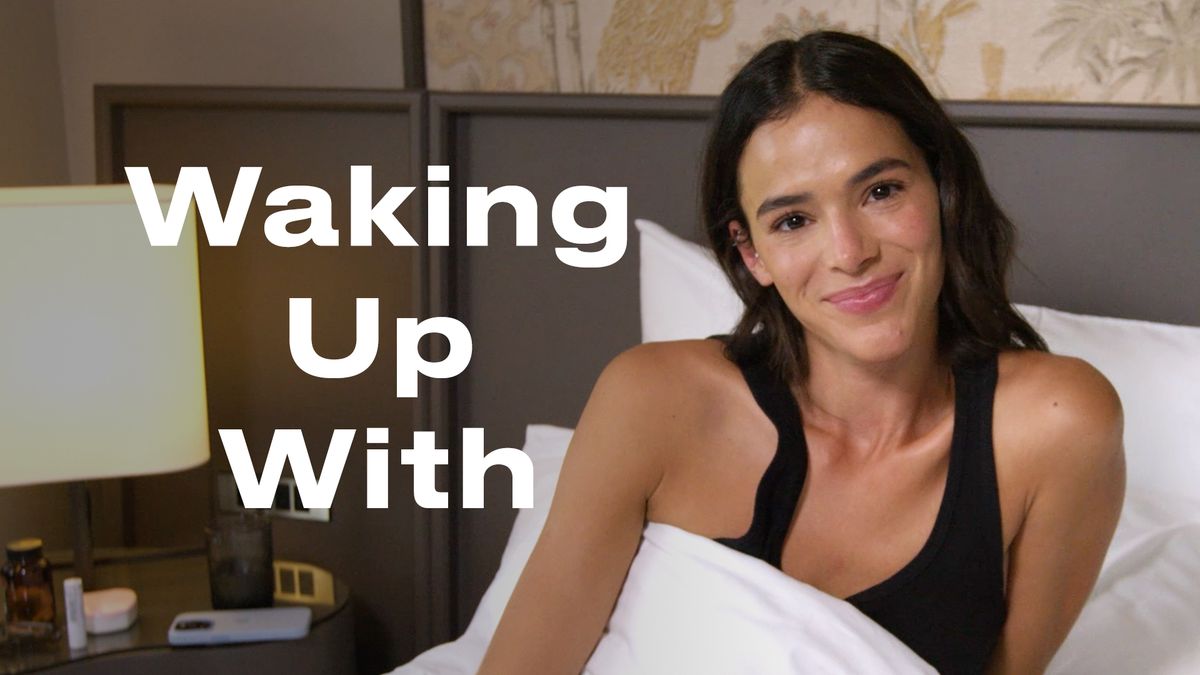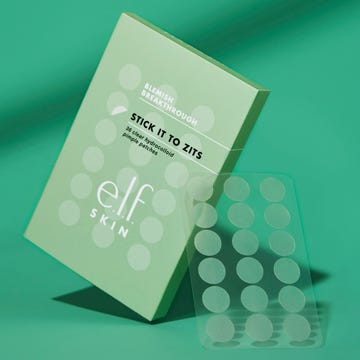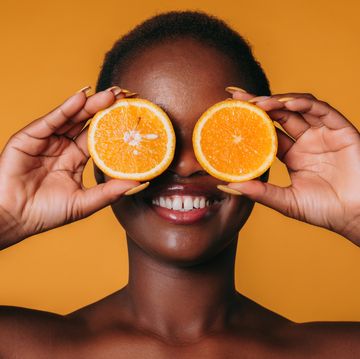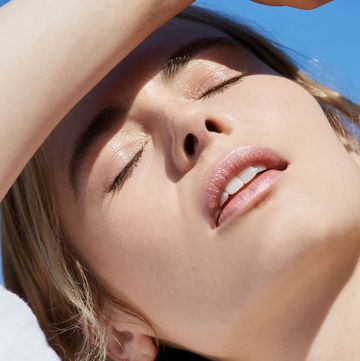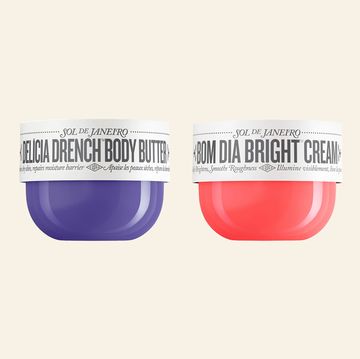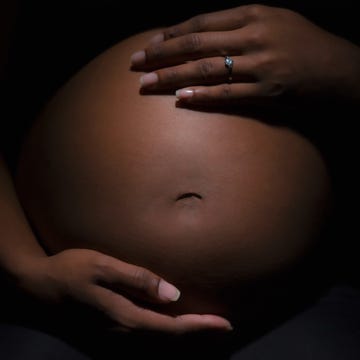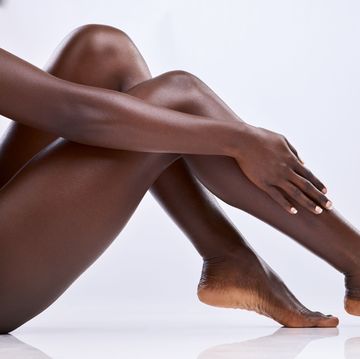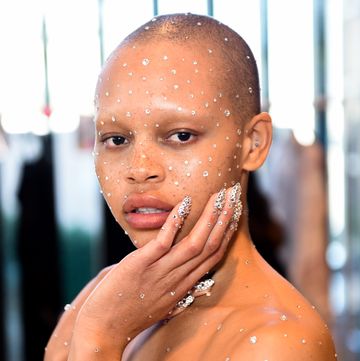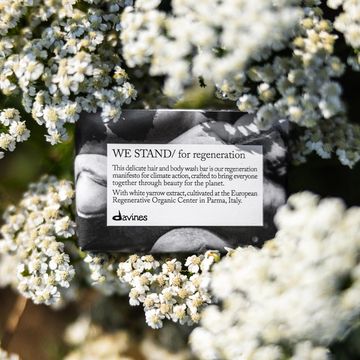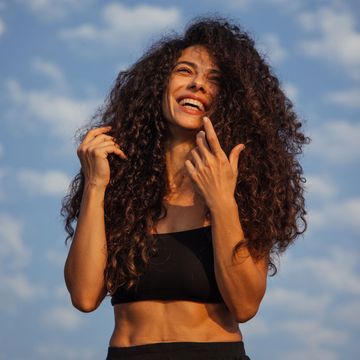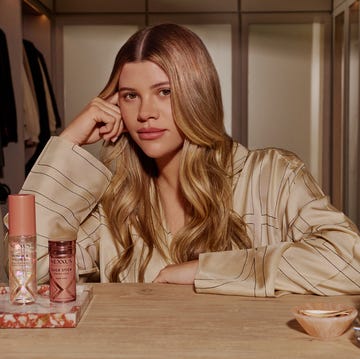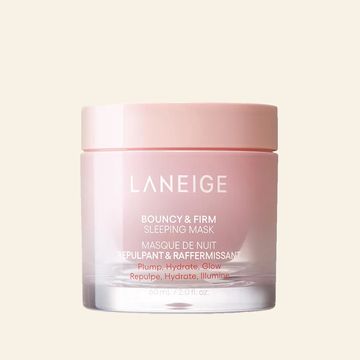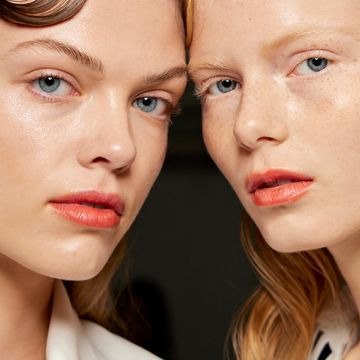From the secret to ultrasoft hair to tips on when to toss out makeup, ELLE teams up with Google to answer the world's most-searched beauty questions.
FRANCE
In a country known for laissez-faire beauty, the fact that "Is it okay not to comb your hair?" turns up as a frequent query isn't entirely startling. (Our answer: Toss that comb, unless snarls are causing hair breakage.)
TOP QUESTION: "WHEN DOES MAKEUP EXPIRE?" European cosmetic guidelines make it easy: Products sold there (and many Euro-made concoctions that are distributed in the U.S.) are required to list on the label how long the formula will stay fresh after opening. For products that lack that handy guideline, Kelly Reynolds, PhD, a microbiologist at the University of Arizona's Zuckerman College of Public Health, recommends playing it extra safe with anything that goes on or around the eye: Toss mascara, liquid eyeliners, and concealers after three months. "The eye has very few defenses against bacteria," Reynolds says. "It has open tear ducts and very little physical protection, so very low doses can cause infection." Anything liquid, from skin creams to makeup, should be trashed after a year (or as soon as it separates or starts smelling off), while powder and shadow can stay fresh for up to two years. To get the most shelf life out of any makeup, exile it from balmy bathrooms (as heat and humidity can speed up bacterial growth), avoid applying with fingers, and sanitize brushes and tools weekly.
BRAZIL
With more than 50 years of innovations—from liposuction to body-lift techniques—plus a pro-scalpel government that subsidizes cosmetic tweaks, Brazil leads the world in the number of plastic surgery procedures per year. And many of the country's questions, such as "How much can skin shrink?," are predictably body-centric. (The answer? Lax skin, whether due to weight loss, liposuction, or age, can't shrink significantly. But dermatologists can tighten the skin slightly with ultrasound or radio-frequency treatments, while plastic surgeons can reduce it with a tuck.)
TOP QUESTION: "HOW OFTEN TO SHAMPOO HAIR?" Contrary to Internet conspiracy theories, the fact that some women need to wash their hair daily wasn't a marketing trick invented by hair-care companies. "Women with a lot of sebum production benefit from daily cleansing. Sebum production is under hormonal control, so shampooing will not cause more oil production," says dermatologist Francesca Fusco, MD. "Drier hair types can do with as little as once a week." One exception: Those who are prone to fungal growth (which can cause dandruff or inflammation), regardless of their hair type, need to lather up regularly with antidandruff shampoo—look for ones containing zinc pyrithione or ketoconazole.
AUSTRALIA
Aussies are hair-obsessed: Their top Google queries cover basics such as "how to grow hair fast" and "how to make hair thicker." Sorry to disappoint, but because genetics determines both the rate of hair growth and the width of the hair follicle, there's nothing you can do to make hair grow more quickly. You can't make your hair strands any fatter either, but you can prevent them from becoming thinner with topical minoxidil and laser treatments.
TOP QUESTION: "IS IT BAD TO SLEEP WITH WET HAIR?" Although stylists often recommend sleeping in damp braids to get beachy waves, a study published in the Annals of Dermatology delivered a blow, so to speak, to that practice. Turns out air-drying may be more harmful than blow-drying: Water causes strands to swell; over time, this could weaken hair from the inside out. In the study, hair samples that were shampooed and then air-dried for two hours were compared to those blasted at various temperatures. Only the air-dried samples had significant damage to the cell membrane complex, the cement that holds cuticle layers together. That's not to say that dryers can be used with impunity: As the temperature of the air increased, the study found, so did the damage to the outer layers of each strand. The healthiest option, if not the speediest, is to dry on the lowest heat setting, with the dryer held at least six inches away from the head.
SOUTH KOREA
Although South Korea is home to the infamous 10-plus-step skin-care routine, recently South Korean women have also been seeking hair hacks. ("Will topically applying egg stop hair loss?" In a word: No.)
TOP QUESTION: "IS FOUNDATION BAD FOR ACNE?" Although old-fashioned foundations, heavy with mineral oils, could block pores and cause major breakouts, most modern ones are noncomedogenic, meaning they have been formulated to contain zero pore-clogging ingredients. And some foundations take it a step further: The original BB creams in South Korea were known as blemish balms, containing soothing antiacne ingredients to treat and hide acne simultaneously. (Not so stateside: Since BBs made the leap to the U.S. circa 2012, that first B has stood for Beauty.) To find foundations that "are actually therapeutic for acne," Jenny Kim, MD, PhD, a professor of medicine and dermatology at UCLA's School of Medicine, recommends looking for those with salicylic or glycolic acid.
INDIA
Taking their lead, perhaps, from the double whammy of Bollywood stars—long, gorgeous manes and perfect skin—India's beauty Googlers are concerned with both. In particular, how to achieve them naturally via skin care and diet.
TOP QUESTION: "WHICH VITAMINS ARE GOOD FOR HAIR AND SKIN?" Load up on vitamin C, which supports collagen production, as well as on omega-3 fatty acids, which reduce inflammation, improve elasticity, and help the skin maintain hydration. Antioxidant-rich foods—think berries and veggies such as beans, artichokes, and russet potatoes—"reduce free-radical stress and oxidative stress in the body as well as the skin," says Patricia K. Farris, MD, a clinical associate professor of dermatology at Tulane University. Both Zinc and B complex vitamins, such as biotin, are excellent hair helpers that up shine, reduce breakage, and increase moisture retention. And vitamin E gives an extra boost to strands too: Regular supplementation has been proven to reinvigorate the growth of dormant follicles by more than 30 percent after eight months.
NIGERIA
Africa's most active Googlers look for DIY beauty remedies, asking, for example, what olive oil and honey, applied topically, can do for the skin. Extra-virgin olive oil doubles as a skin-soothing makeup remover and a body moisturizer, while honey, when used as a mask, can have hydrating and antimicrobial benefits.
TOP QUESTION: "HOW CAN I MAKE HAIR FEEL SOFT?" Parched or broken strands feel less soft to the touch than well-hydrated, nondamaged hair, advises hairstylist Tippi Shorter, Aveda global artistic director for textured hair, who has worked with Beyoncé and Alicia Keys. Straight hair follicles have a round, tubular shape, while textured, curly strands are "kidney shaped," and therefore "more prone to damage and injury," requiring more conditioning than other hair types, says hair-growth expert Alan J. Bauman, MD, who recommends using a heavy, lipid-rich conditioner every time you get your hair wet. "If you don't, you're putting hair at major risk for breakage," he says. For ultrasoft hair, Shorter takes it one step further, prescribing regular (daily, if your hair needs extra TLC; weekly, if you're in good shape) 10-minute deep-conditioning treatments: Massage a rich, shea-butter-based conditioning mask through hair and pop on a shower cap. "Get a hand towel, dampen it, and put it in the microwave for 20 seconds, and then wrap it around your head" over the cap, Shorter says. "The towel produces heat and steam inside of your cap, which helps to open the cuticle, allowing the mask to fully penetrate the hair strand and further soften hair."
UNITED ARAB EMIRATES
Hijama treatments (a form of cupping) and Arabian oud fragrance notes have wafted into the West's consciousness in recent years, but for women of the UAE, it's hair—straight hair in particular—that's on their minds: Chinese hair rebonding and "hair Botox" (before you get too excited, it's another term for straightening) earned spots in their top-10 search activity. While methods like these will indeed smooth strands, they may involve a cocktail of chemicals—including, in some cases, formaldehyde. So proceed with caution.
TOP QUESTION: "WHAT ARE MAKEUP BASICS EVERY GIRL SHOULD HAVE?" ELLE's beauty team has winnowed our kits to a handful of makeup essentials that work at industry dinners in far-flung locales or on ordinary afternoons in our NYC offices. Products that do double duty are heroes: Our go-to minimal essentials are a cheek/lip tint (give your cheeks a quick pinch to gauge your natural flush), an ultrablendable concealer that can double as a foundation, a smudgy pencil that can create a fine line or a smoky eye, plus a mascara. Then add your personal preferences, such as a highlighter for more glow or a brow pencil for arch definition.
BEAUTY GoogELLE
Need to know Beyoncé's glow-getting essentials or the fastest skin fixes? Go to ELLE.com/googelle to see the answers to America's most-Googled beauty questions.
This article originally appears in the September issue of ELLE.

